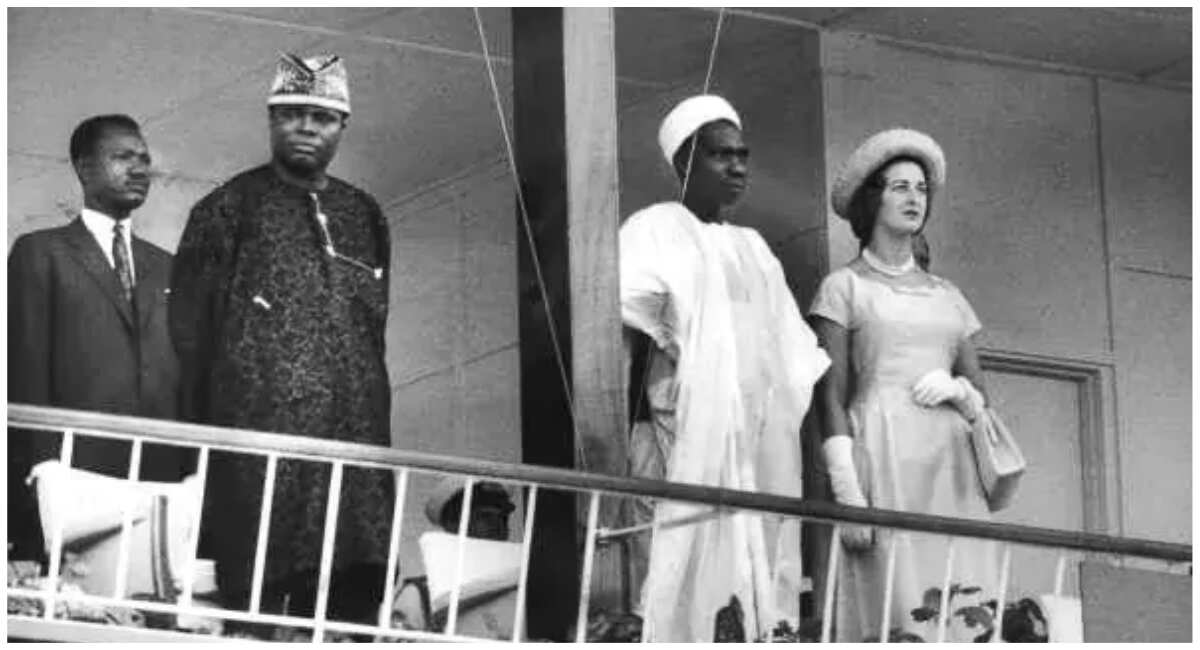The Path to Independence Day of Nigeria
 |
| Nigeria's First Independence Day. Source: Legit |
The history of Nigeria's struggle for independence is a journey of perseverance, resilience, and determination that shaped the nation's destiny. Spanning decades of colonial rule, cultural diversity, and political activism, Nigeria's path to freedom was marked by both challenges and triumphs. In this comprehensive article, we will delve into the intricate timeline of events that led to Nigeria's independence, examining the key figures, movements, and milestones that defined the nation's quest for self-determination.
Pre-Colonial Nigeria: A Tapestry of Cultures
Long before colonial powers set foot on Nigerian soil, the region was home to a diverse array of cultures, kingdoms, and societies. The territory that would become Nigeria was inhabited by various ethnic groups, each with their own traditions, languages, and systems of governance. The Kingdom of Benin, the Sokoto Caliphate, and the Oyo Empire were among the prominent entities that flourished in pre-colonial Nigeria.
Colonialism and the Scramble for Africa
The late 19th century witnessed the infamous Scramble for Africa, during which European powers carved up the continent for their own imperial interests. In the case of Nigeria, the British established their presence through trade and diplomacy. By the early 20th century, Nigeria was divided into two major regions: the Northern Protectorate and the Southern Protectorate.
Nationalist Movements and Political Awakening
The early 20th century marked the emergence of Nigerian nationalism and a growing desire for self-governance. Figures like Herbert Macaulay and Nnamdi Azikiwe spearheaded movements advocating for increased political representation and local autonomy. These pioneers laid the groundwork for a sense of unity and the eventual struggle for independence.
World War II and Its Impact
World War II played a pivotal role in Nigeria's journey towards independence. The war disrupted colonial economies and exposed the contradictions of British rule. Additionally, the sacrifices made by Nigerians who fought in the war further ignited the call for self-determination and the right to determine their own fate.
The Rise of Political Parties and Agitations
Following World War II, political parties began to gain prominence, each advocating for distinct visions of Nigeria's future. The National Council of Nigeria and the Cameroons (NCNC) under Nnamdi Azikiwe, and the Action Group led by Obafemi Awolowo, were two of the major parties that sought to shape the nation's destiny. These parties played a crucial role in galvanizing support for independence through peaceful protests, rallies, and discussions.
Independence Day: October 1, 1960
| Nigeria's Independence Day. Source: Pulse |
The culmination of Nigeria's struggle for independence was realized on October 1, 1960, when the Union Jack was lowered and replaced with the Nigerian flag. Sir Abubakar Tafawa Balewa became Nigeria's first Prime Minister, leading the nation into a new era of self-governance. The journey towards independence was a testament to the resilience of the Nigerian people and their determination to shape their own destiny.
Challenges and Post-Independence Realities
While independence marked a significant milestone, Nigeria's journey was far from smooth. The nation faced internal challenges, including ethnic tensions, religious divisions, and economic disparities. The First Republic, characterized by political instability, eventually led to a series of military coups and periods of military rule.
Striving for Unity and Progress
Despite the challenges, Nigeria has continued to strive for unity and progress. The nation has witnessed periods of civilian rule, efforts to address ethnic and religious tensions, and economic diversification initiatives. The resilience of the Nigerian people remains a driving force in overcoming obstacles and forging a brighter future.
Conclusion: A Nation's Unwavering Spirit
Nigeria's history of independence embodies the spirit of a people determined to shape their own destiny. From the richness of pre-colonial cultures to the challenges of colonialism and the struggles of the nationalist movement, every phase has contributed to the tapestry of Nigeria's story. The nation's journey continues as it seeks to harness its diverse strengths, address its challenges, and create a unified, prosperous, and harmonious future. The legacy of Nigeria's struggle for independence serves as an inspiration for the world, reminding us that the quest for freedom is a journey worth embarking upon.
Comments
Post a Comment